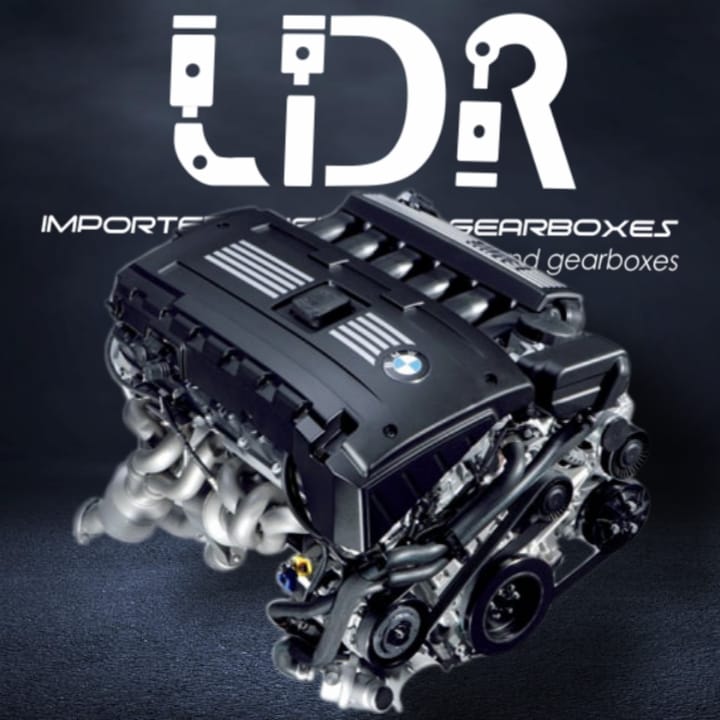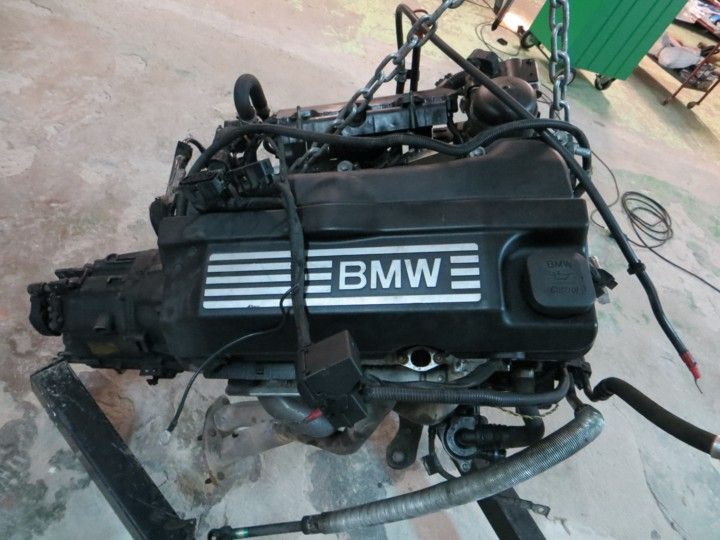BMW 318ti: A Timeless Compact with Classic Allure
BMW 318ti: A Timeless Compact with Classic Allure
Blog Article
Key Features to Look for When Buying an Engine for Automotive Applications
When thinking about the acquisition of an engine for vehicle applications, numerous essential attributes warrant cautious evaluation to make sure optimum performance and performance. From power and efficiency capabilities to fuel adherence, efficiency, and sturdiness to emissions requirements, each element plays an essential function in establishing the engine's viability for specific automobile requirements.
Power and Efficiency
When picking an auto engine, buyers prioritize power and performance to ensure optimal driving experience and effectiveness. The power outcome of an engine, typically determined in horse power (HP) or kilowatts (kW), determines the acceleration, full throttle, and general abilities of an automobile. Greater power scores normally lead to quicker acceleration and much better performance, especially throughout overtaking or bring heavy loads. Efficiency, on the various other hand, incorporates a more comprehensive range of attributes, including fuel efficiency, exhausts, integrity, and general driving characteristics. A well-performing engine not only delivers power efficiently yet additionally operates smoothly throughout various speed ranges and driving conditions.
Buyers often take into consideration the engine's torque outcome alongside its power ranking. Torque, determined in pound-feet (lb-ft) or Newton-meters (Nm), reflects the engine's rotational pressure, influencing the lorry's capability to tow, climb inclines, and speed up from standstill. An equilibrium between power and torque is crucial for accomplishing a responsive and functional driving experience. Furthermore, variables such as engine crossbreed, turbocharging, and displacement innovations play significant functions in boosting both power and performance degrees. Ultimately, choosing an engine that offers a potent mix of power and performance makes sure a reliable and rewarding driving experience. bmw 318ti.
Fuel Efficiency
Enhancing fuel performance is a vital consideration for customers when evaluating auto engine choices. The efficiency of an engine straight impacts operating expense and ecological footprint. One vital element affecting gas effectiveness is the engine's layout and technology. Modern engines with functions like straight fuel shot, turbocharging, and variable shutoff timing can considerably boost fuel efficiency by boosting burning processes and minimizing power loss. Additionally, the general weight of the engine and lorry, as well as the aerodynamics, play vital duties in identifying gas intake.

Sturdiness and Reliability
Attaining lasting efficiency and reliable procedure is vital for customers assessing the durability and dependability of automotive engines. When thinking about an engine for automotive applications, longevity refers to the engine's capability to endure wear, stress and anxiety, and severe operating problems over an extended duration. Integrity, on the other hand, suggests that the engine can consistently do its desired function without unforeseen breakdowns or failures.
Customers need to search for engines constructed with high-quality products and specific design to make certain durability. Elements such as crankshafts, bearings, and pistons need to be long lasting to take care of the engine's power outcome without premature wear. In you could try here addition, engines equipped with advanced cooling systems, efficient lubrication, and durable purification devices often tend to show greater degrees of integrity.
Normal upkeep and adherence to manufacturer recommendations are also essential consider protecting an engine's durability and reliability. By following maintenance schedules, using advised liquids, and resolving any kind of concerns immediately, customers can make the most of the lifespan and efficiency of their auto engines. Inevitably, focusing on sturdiness and dependability in engine selection can lead to an extra gratifying ownership experience with fewer unanticipated disturbances.
Discharges Compliance
Ensuring conformity with discharges policies is a crucial aspect of reviewing vehicle engines for environmentally aware customers. With enhancing problems regarding air quality and ecological effect, strict exhausts standards have actually been implemented around the world to decrease hazardous toxins released right into the environment. When purchasing an engine for vehicle applications, it is important to consider its emissions conformity to minimize the carbon impact and comply with lawful requirements.
Modern engines are outfitted with advanced discharge control modern technologies such as catalytic converters, exhaust gas recirculation (EGR) systems, and careful catalytic decrease (SCR) to lower damaging exhaust gases like nitrogen oxides (NOx), carbon monoxide (CO), and hydrocarbons (HC) These systems play a crucial function in making certain that the engine meets the defined emissions requirements and runs within permissible limitations.

Cost-effectiveness
When thinking about vehicle engine purchases, assessing cost-effectiveness is more helpful hints critical for consumers seeking both anchor efficiency and worth. It includes the general expenses connected to upkeep, fuel consumption, and potential fixings over the engine's life-span.
Engines that are made to make best use of fuel economic situation can lead to considerable financial savings over time, especially for people who drive often or over lengthy distances. bmw 318ti. In addition, considering the schedule and affordability of spare components and servicing can contribute to the general cost-effectiveness of an engine.

Conclusion
In final thought, when acquiring an engine for auto applications, it is essential to think about crucial attributes such as power and efficiency, fuel toughness, integrity and performance, exhausts conformity, and cost-effectiveness. These aspects are important in guaranteeing that the engine satisfies the demands of the car and operates efficiently in various driving problems - bmw 318ti. Making a notified decision based on these standards will inevitably cause a effective and effective vehicle engine acquisition
From power and performance capabilities to sustain adherence, efficiency, and longevity to emissions criteria, each element plays an important role in establishing the engine's viability for certain automobile demands. Engines developed to run on alternative gas such as electric power, crossbreed systems, or biofuels can offer better fuel economic situation and lower exhausts compared to traditional gas or diesel engines. Customers must carefully think about the fuel effectiveness rankings and innovations included into auto engines to make informed purchasing decisions that straighten with their priorities for expense financial savings and sustainability.
When thinking about an engine for auto applications, resilience refers to the engine's capacity to withstand wear, anxiety, and harsh operating conditions over an extensive period.In final thought, when acquiring an engine for automotive applications, it is important to take into consideration key functions such as power and efficiency, gas performance, reliability and sturdiness, exhausts compliance, and cost-effectiveness.
Report this page